Team SCA: You’ve come a long way, baby
Published on May 19th, 2015
Sally Barkow is a 2-time winner of the US Rolex Yachtswomen of the Year award, having accomplished success as an Olympic and match racing skipper. But when the opportunity to join the all-female team competing in the Volvo Ocean Race 2014-15 became available, Sally chose a new direction and went offshore sailing. Here she comments on the experience…
When we started this campaign, there was so much that we didn’t know. From how to sail the boat to how to build the team to matching experience within the team to specific roles on the boat, the process has taken a really long time to get to where we are now, and we still have a long way to go. Looking back to the beginning of our program, it was so hard to anticipate how big a challenge we had all taken on. We had to go through this entire experience to realize it.
We are finally competitive within the fleet, but we are nowhere near the level of some of the other teams. Everything is an immense undertaking to sail these boats well. From the time you decide to tack, you might need another minute before you are able to tack. So many things need to be in place to execute maneuvers properly or you will run into big problems, and this gets magnified out on the ocean.
As sailing boats of this scale was not in my background, I had a lot to overcome to understand the basic mechanics of the boat. And it is not just the boat itself, but how the team must operate. In our training we were rotating people around a lot, so you had a couple days doing one position and then you’d get moved to another job. We were all still learning all the jobs, which affected how smooth and fluid we could operate as a team.
This was so different from my sailing in dinghies or small keelboats, where each person had their role, and the team would train to insure each person mastered that role. But now, we see how that learning process we went through has paid off, since we have to be able to sail these boats offshore with five people. If we all didn’t know what was required of the pit, the bow, the trim, etc. we’d be in trouble.
So the training process needed has been one of the team’s hurdles. Because of how they had to design the team, you could say it is completely backwards from what is typical. The other teams likely started with a skipper and a navigator, whereas for us there was just an open call for crew candidates. The crew tryouts eventually led to a skipper selection, with the navigator person being the last person hired. But there was no other way to have formed the team since the experience wasn’t there. We had to build this team from the ground up.
When we each signed up, we were all quite experienced in our parts of the sport, but our skills were not sufficiently aligned to what it takes to sail the Volvo Ocean 65. We had a lot of catching up to do to sail the boat naturally like I could, for example, sail during my Olympic campaigns. But the hope now is that the skills developed will bridge the gap to future endeavors for the crew.
Another adjustment for me, coming from my involvement with smaller teams, was determining how to fit within this big team. When I would run my Olympic campaigns, I would be involved in everything from the budget, to hiring the coaches, to the schedule, to the accommodations, etc. But with SCA, so much of these decisions are being made by others, so I would miss contributing to these decisions. However, at the same time, it is nice to eliminate the distractions and focus only on my sailing role.
It also took time to adjust to working within the size and complexity of a commercial team. So many decisions or plans would take longer than with smaller, more nimble teams. I was used to coming off the water, rolling straight into a debrief, and then planning for what we were going to work on for the next day. I was used to this being a quick process, but there are so many moving parts with a Volvo team, and the type of sailing we are doing is so varied. We need to be able to sail the boat in every wind and sea-state, and at every point of sail. This isn’t windward-leeward racing.
So there can be some frustration with the delays in the planning. However, I recognized this, and had to step back and put my belief in the system. It wasn’t that I couldn’t contribute, but by and large I saw the importance of being a team player and executing the plan that would get presented.
We have been fortunate to work the SCA coaches, who are some of the most experienced people at the offshore level. Their priority has been to pass over as much information as possible, and this has been super successful, particularly in our early training on the Volvo Ocean 70, which was a boat that they were all very familiar with.
But when we switched to the 65, it became a learning process for both the coaches and the sailors. Now we are at a level where the sailing team no longer makes the basic mistakes. We are doing most things right, and now need to keep taking the smaller steps forward. We need to keep raising our ability, whether it be in trimming the boat for various conditions or improving our navigation or better fleet strategy for anticipated weather changes.
Once we begin an offshore leg, we are on our own, but the coaches remain passionate about their role. We are able to send them information on what we need to work on, and they are able to do a lot of the research to help us out and guide us in the right direction. It is a hard role for them, because they don’t have the experience on the 65, which has proved to be a very different boat than the 70.
I am still deciding if offshore sailing is the road forward for me. I do love it, I do love being out there, and I do love the racing part of it. I would also love to do some coaching, especially at the Olympic level. I have had coaches that have greatly influenced my career, and it would be gratifying to have that same impact for someone coming up through the ranks.
What I will do after the Volvo Ocean Race is still not decided. I guess I will wait and see. There will be some time off to rest after the finish, and I will definitely stay involved in the sport, though I am not certain what form of racing that will be.
Race website – Tracking – Scoreboard – Videos
Background: The 2014-15 Volvo Ocean Race began in Alicante, Spain on Oct. 11 with the final finish on June 27 in Gothenburg, Sweden. Racing the new one design Volvo Ocean 65, seven teams will be scoring points in 9 offshore legs to determine the overall Volvo Ocean Race winner. Additionally, the teams will compete in 10 In-Port races at each stopover for a separate competition – the Volvo Ocean Race In-Port Series.


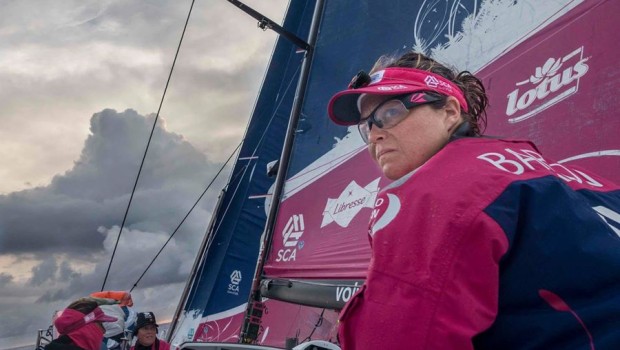


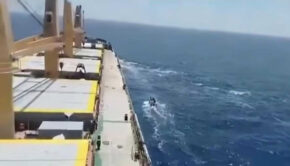
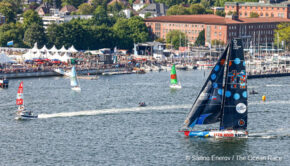
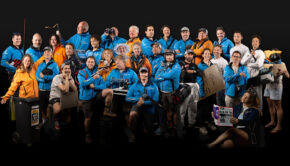
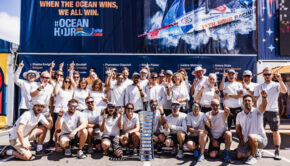
 We’ll keep your information safe.
We’ll keep your information safe.